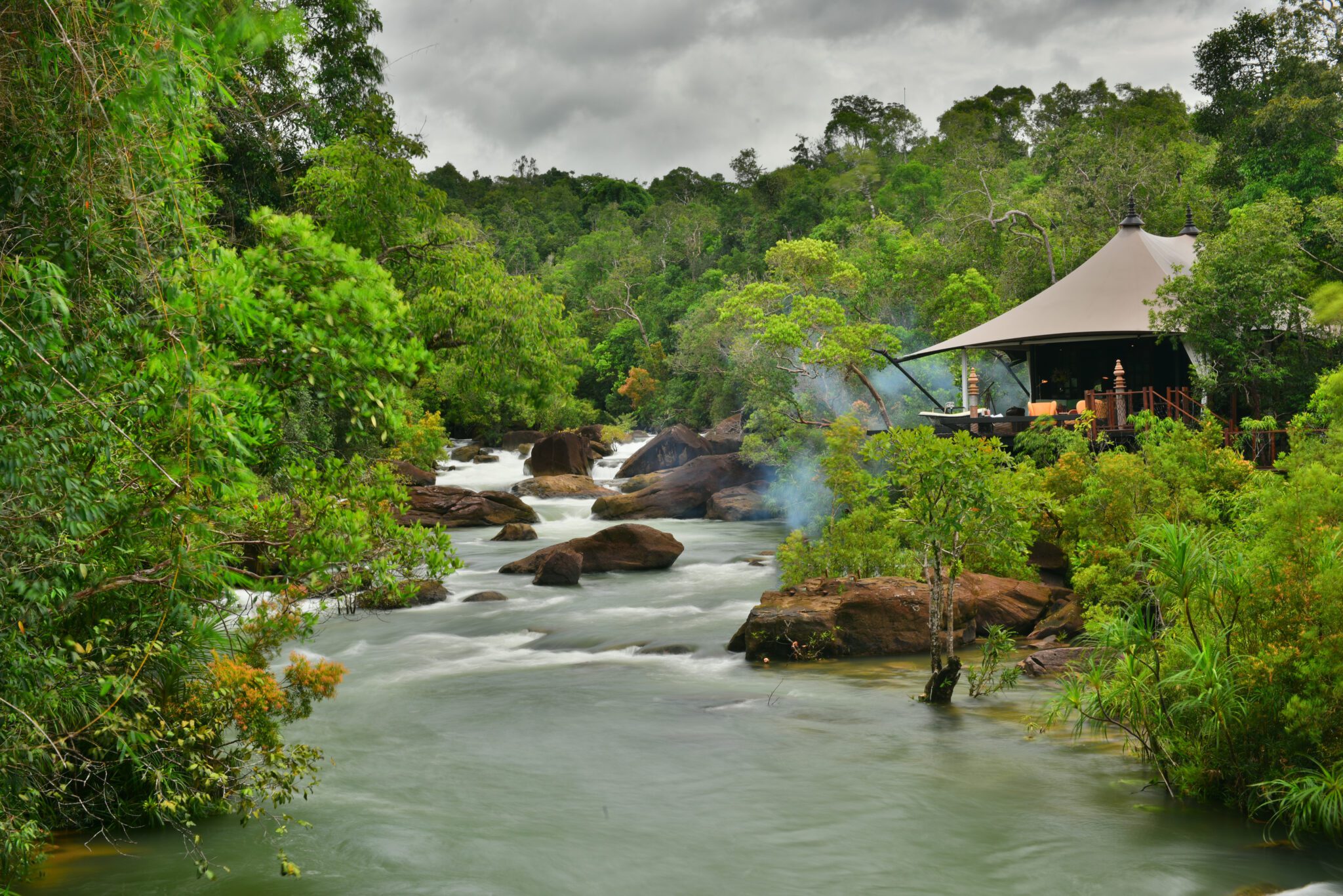Skift Take
Cambodia is in its earliest stages of establishing conservation during a precarious time. There are lessons to be learned in Africa, and David Steyn, GM of Shinta Mani Wild tented camp, is helping to broker them.

On Experience
Colin Nagy, a marketing strategist, writes this opinion column for Skift on hospitality and business travel. On Experience dissects customer-centric experiences and innovation across the luxury sector, hotels, aviation, and beyond. He also covers the convergence of conservation and hospitality.
You can read all of his writing here.
In the evolving story of global conservation, Cambodia, with its verdant forests and deep cultural history, is at at an important inflection point: The country needs to find a modern approach to conservation while balancing the need for economic growth and bringing people out of poverty.
Essential to these efforts is the preservation of The Cardamom Forest. Historically, it’s been an economic lifeline for locals through logging and hunting, but thanks to new initiatives, parts of the forest are being preserved.
David Steyn, General Manager of Shinta Mani lodge, a tented camp in Cambodia that is at the forefront of modern conservation efforts, highlights the tension. “Communities that once saw the forest as a source of livelihood are now grappling with its new protected status,” Steyn says.
This tension draws several parallels to Africa, where there is a constant push-pull between what people seek to take from the land and what is required to preserve animals and nature.
Africa’s ongoing path to conservation serves as a playbook of sorts for Cambodia. But while Africa entices tourists with its majestic “Big Five” and high-end safari camps, Cambodia’s allure is different.
In the case of Shinta Mani, the appeal is the ability for conservation-minded guests to be on the front lines of the story. They regularly immerse themselves in important initiatives like anti-poaching and other efforts.
“Our anti-poaching experiences have been profound for guests,” Steyn said. “It provides a hands-on insight into conservation unlike any other.”
The Threats Faced
Cambodia’s conservation objectives are plagued by diverse challenges, such as deforestation, bushmeat trade, and rampant animal poaching.
Foreign investments, particularly from China, in the form of infrastructure and entertainment hubs, intensify the complexities. China has eyed the country for various elements of its economic development, a tension that comes in opposition to what is required to preserve the land and its inhabitants.
“Chinese enterprises are keenly exploring opportunities here, from wind turbines to expressways,” Steyn said, hinting at the geopolitical undertones of these initiatives.
Amidst this complex matrix, Bill Bensley stands out with his avant-garde approach at the Shinta Mani Camp.
Bensley’s project melds the luxury tented experience you would find in Africa with the Cambodian land, and a sense of profound environmental consciousness. “Guests are not mere spectators here; they actively engage in understanding and contributing to conservation,” Steyn said.
In the global luxury travel market, Cambodia is crafting a unique narrative. It’s not mere indulgence; it’s about engendering awareness, responsibility, and participation among its high-end travelers.
“Our ethos is about immersion, not just observation,” according to Steyn.
He suggests clientele have both intellectual curiosity and the necessary sense of adventure to be able to get to remote areas of Cambodia. And, similar to what he experienced working in high-end safari camps in Africa, guests often turn into high-net-worth advocates and continue their support after leaving the Cambodian border. The work he and his team does do is a mix of luxury hospitality and diplomacy of sorts.
The Wider Conservation Ecosystem
While Shinta Mani Camp is a beacon in Cambodia’s conservation efforts, it’s but one element in a group of organizations and entities advocating for the environment.
Wildlife Alliance is recognized globally for its “boots on the ground” approach at the forefront of efforts to combat deforestation, wildlife trafficking, and poaching. The projects span from forest protection and community-based ecotourism to wildlife rehabilitation.
Fauna & Flora International (FFI) has emphasized local partnerships since the 1990s, focusing on safeguarding species and ecosystems while also enhancing local livelihoods.
Given Cambodia’s rich avifauna, BirdLife international has also been instrumental in establishing and managing protected areas. Their work in the Western Siem Pang region is noteworthy, where they protect critically endangered species like the Giant Ibis and White-shouldered Ibis.
Conservation International (CI) has been pivotal in establishing community fisheries and promoting marine conservation in the Koh Rong Archipelago, ensuring that marine ecosystems are preserved while also benefiting local communities.
These players, alongside local NGOs and communities play a pivotal role. Their intimate understanding of the terrain and cultural dynamics ensures that conservation solutions are both sustainable and socially inclusive.
Steyn points out that the collective effort, in the face of geopolitical development and investment, is cause for optimism. He comments, “It’s heartening to see the collective effort, both international and local, working towards a common cause. While we have various approaches, our end goal is singular — preserving Cambodia’s rich natural heritage.”
Political Winds
The August election of a Western educated new Prime Minster in Cambodia, Hun Manet, gives hope that conservation will become higher up on the agenda at the government level. Steyn and others are optimistic that new leadership can bring more top-down support.
Hospitality alone can’t fix all the problems of Cambodia. But tourism is an essential component to drive growth. But many variables remain, including the role of China and how their economic ambitions play into the delicate progress being made with conservation.
Have a confidential tip for Skift? Get in touch
Tags: cambodia, conservation, On Experience
Photo credit: Shinta Mani Wild Tents Shinta Mani Wild
